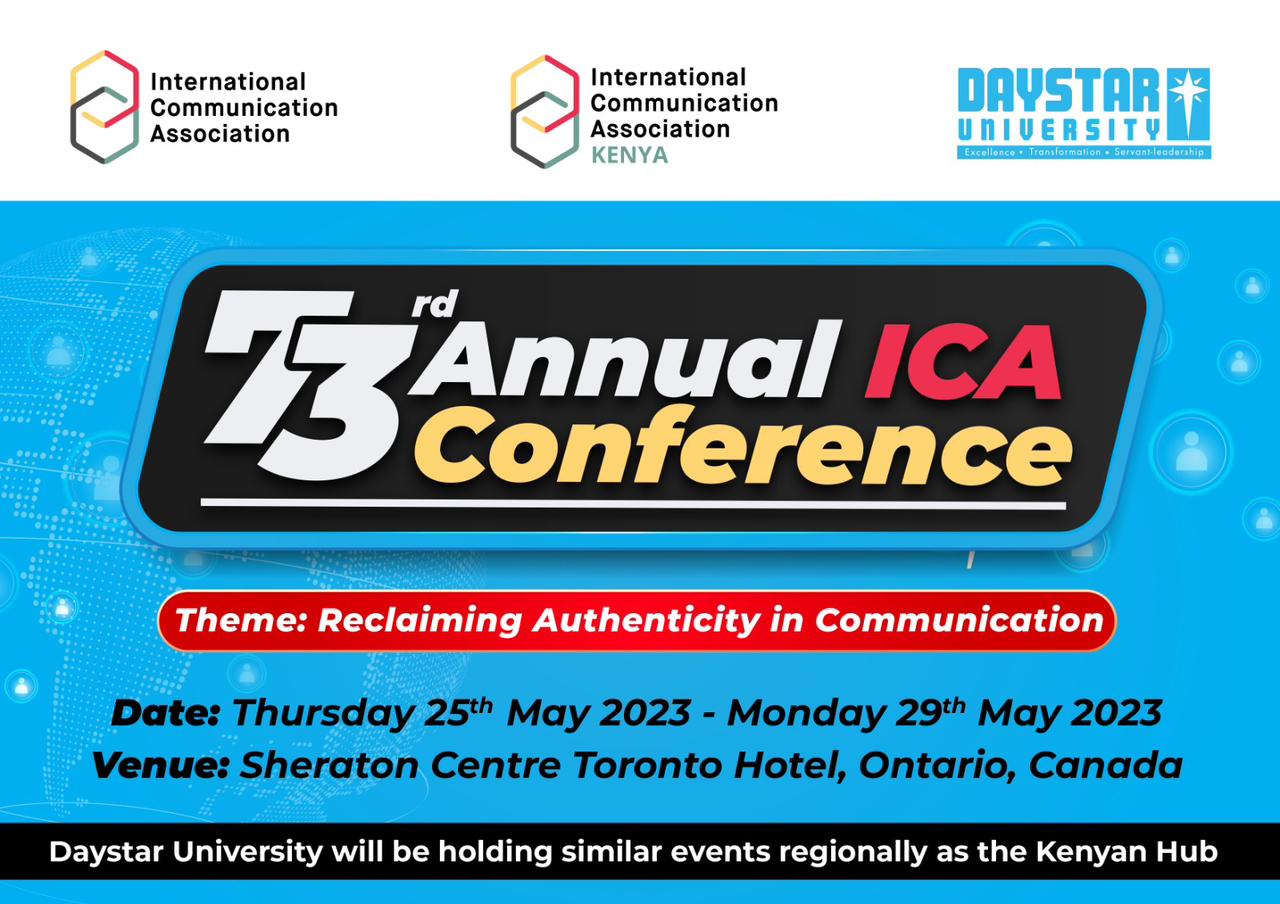
By Eun-Ju Lee, ICA President-Elect, Seoul National U
The ICA 2023 conference theme of Reclaiming Authenticity in Communication invites communication scholars to examine how authenticity has become a variable, rather than a constant, in public discourses and popular culture across the globe, and with what relational, social, political, and cultural implications.
Until not long ago, truth was safely assumed in most communication, most of the time. We routinely followed unspoken rules, such as “Do not say what you believe to be false” and “Do not say that for which you lack adequate evidence,” (Grice, 1975, p. 46) and assumed the same for others. As such, the presumption of honesty (vs. deception), also known as truth-default, was deemed functional, enabling efficient communication (Levine, 2014).
Perhaps not anymore. Most notably, a recent surge of false and/or misleading communication across contexts and borders has ushered us into a global authenticity crisis. In the midst of the COVID-19 pandemic, devastating consequences have followed false information regarding the cures and prevention measures of the virus. Political leaders’ faulty claims and outright lies tainted democratic processes and posed imminent threats to the society. To make matters worse, falsehood is often coupled with hatred and prejudice, targeting vulnerable groups and subpopulations. Authenticity crisis, however, goes well beyond mere factuality of messages (Lee, 2020).
When we call in for a customer service, we no longer can tell for sure if we are talking to a human or an algorithmic agent. Deepfake videos of politicians go viral, not only damaging the reputations of those featured but lowering public trust in politicians as well as political systems. With authenticity becoming the new currency, illusions of authenticity abound in media such as reality TV shows and docusoaps, where carefully crafted ordinariness and imperfections are presented as signs of authenticity (Enli, 2015). Politicians compete for voter attention and affection by disclosing intimate details of personal affairs (which may or may not be genuine) in talk shows or via their social media posts. Social media influencers share their experience of particular products without necessarily informing that they were, in fact, sponsored. Selective and strategic self-presentation on social media platforms has long been the subject of scholarly inquiry about the notion of true self, but with the recent hype about the metaverse, which is populated by disembodied, avatar-based individuals, the construction and reconstruction of self-identity seems more relevant than ever, raising the question of what comprises an authentic self.
With the countless and increasing instances of authenticity scandals, authenticity illusions, and authenticity puzzles as part of communication practices, this theme invites scholars to consider a host of related questions and issues, including (but not limited to) the following:
- What are the key pillars of authentic communication? What makes communication more or less authentic? What differentiates authentic and inauthentic communication?
- What kinds of roles does (perceived) authenticity play in interpersonal, social, political, and cultural communication practices?
- How is authenticity construed similarly or differently across contexts, such as in journalism, politicians’ election campaigns, public health campaigns, reality TV shows, MMORPG, interpersonal/intergroup encounters, PR and advertising, and the like?
- How do the changes in the communication systems (e.g., emerging media platforms) as well as actors (e.g., AI agents) affect the ways in which authenticity is expressed and materialized in communication?
- How do people authenticate messages they encounter? What factors are involved in the authentication process and how do they affect communication outcomes?
- What are the common authenticity markers people rely on when making authenticity judgments? How are they exploited to create authenticity illusions?
- When do people mind “faked” or “manufactured” authenticity? Under what conditions does authenticity become an important attribute of communication?
- How does mediation of reality contribute to authenticity perceptions? When the boundary between the real world and the virtual world collapses, how is authenticity defined and negotiated? What does the notion of authenticity imply for research on self-identity, social relationships, and community?
- What are the short-term and long-term consequences of the apparent authenticity crisis? What can or should be done to restore authenticity and trust in social exchanges?
- Are there any particular groups or subpopulations that are more vulnerable to false information?
SUBMISSION GUIDELINES FOR THE ICA 2023 THEME CATEGORY:
- All submissions to the theme category must focus on the concept of authenticity;
- Work that debates, advances and critiques the concept of authenticity can be submitted as papers so as to allow the theme committee to create panels that discuss and/or showcase open science practices;
- Panels for the theme should be cross-divisional (having broad appeal across all units of ICA) and adhere to the diversity considerations highlighted under the general guidelines below;
- Innovative (and interactive) and educational formats are encouraged.
References
Enli, G. (2015). Mediated authenticity: How the media constructs reality. Peter Lang.
Grice, P. (1975). Logic and conversation. In P. Cole & J. Morgan (eds.). Syntax and semantics. Vol 3: Speech acts (pp. 41-58). Academic Press.
Lee, E.-J. (2020). Authenticity model of computer-mediated communication: Conceptual explorations and testable propositions. Journal of Computer-Mediated Communication, 25(1), 60-73. https://doi.org/10.1093/jcmc/zmz025
Levine, T. (2014). Truth-Default Theory (TDT): A theory of human deception and deception detection. Journal of Language and Social Psychology, 33(4), 378-392. https://doi.org/10.1177/0261927X14535916
N/B Registration closes on Monday 22nd May 2023, at midnight.